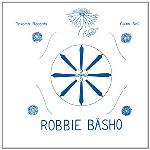
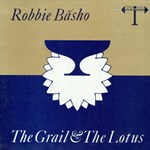
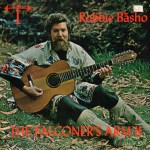
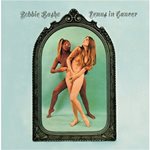
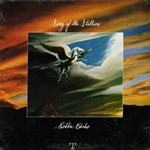
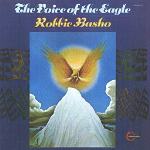







Folk Music on the Silver Screen: Though having created only a small fan base during his short lifetime, guitar player Robbie Basho (1940-1986) is appreciated for radical changes to American music during the 1960s and 1970s. Liam Barker's documentary on Basho's life and music has eventually come to Blu-ray and DVD.
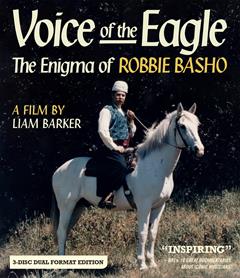
Robbie Basho (born Daniel R. Robinson, Jr., August 31, 1940 – February 28, 1986) was an American acoustic guitarist, pianist and singer.
Basho was born in Baltimore, and was orphaned as an infant. Adopted by the Robinson family, Daniel Robinson, Jr. attended Catholic schools in the Archdiocese of Baltimore and was prepared for college at St. James School, Maryland, an Episcopal school. He went on to study at University of Maryland, College Park. Although he played the euphonium in the high school band and sang in middle school and high school ensembles, his interest in acoustic guitar grew during his college years, as a direct result of his friendships with fellow students John Fahey, Ed Denson, and Max Ochs. In 1959, Basho purchased his first guitar and immersed himself in Asian art and culture. It was around this time that he changed his name to Basho, in honor of the Japanese poet, Matsuo Bashō.
Basho saw the steel string guitar as a concert instrument, and wanted to create a raga system for America. During a radio interview in 1974, promoting his album Zarthus, Basho discussed his music in detail. He described how he had gone through a number of "periods" related to philosophy and music, including Japanese, Hindu, Iranian and Native American. Zarthus represented the culmination of his "Persian period". Basho asserted his wish, along with John Fahey and Leo Kottke, to raise the steel-string guitar to the level of a concert instrument. He acknowledged that the nylon-string guitar was suitable for "love songs", but its steel counterpart could communicate "fire".
Basho credited his interest in Indian music to hearing Ravi Shankar, whom he first encountered in 1962. Basho died unexpectedly at the age of 45 due to a freak accident during a visit to his chiropractor, where an "intentional whiplash" experiment caused blood vessels in his neck to rupture, leading to a fatal stroke.
Robbie Basho's finger-picked guitar technique was influenced heavily by sarod playing, and his studies with the Indian virtuoso Ali Akbar Khan. Basho used unusual open tunings, including a number of variants on "open-C" (CGCGCE), and played a 12-string guitar to recreate the drone that is characteristic of Indian classical music. Basho often used Eastern modes and scales, but other influences include European classical music, blues (in his earlier period), and ballad styles of the U.S.
In the 1970s and 1980s, Basho's contribution to acoustic steel string guitar was eclipsed early by John Fahey, founder of Takoma Records, and the appearance of Windham Hill Records and its roster of musicians. There has been a renewal of interest in his work since 2000, spurred on by reissues by Takoma, Tompkins Square, and Grass-Tops Recording as well as the release of previously unpublished concerts. Grass-Tops inherited tapes that had been preserved for 30 years by guitarist Glenn Jones.
Buck Curran of psychedelic folk band Arborea has curated two Robbie Basho tribute albums, We Are All One in the Sun (2010) and Basket Full of Dragons (2016). Both albums feature contemporary artists reinterpreting Basho's material and original compositions inspired by his style.
British filmmaker Liam Barker premiered the documentary Voice of the Eagle: The Enigma of Robbie Basho in London in October 2015 at the Raindance Festival and the film premiered at San Francisco's Roxie Theater in April 2018. It was nominated for the Jury Award at the Santa Barbara International Film Festival. The documentary traces the troubled life of Basho with previously uncovered archive material and interviews by Pete Townshend, William Ackerman, Alex de Grassi, Henry Kaiser, Glenn Jones, Country Joe McDonald, Steffen Basho-Junghans, Max Ochs, and Richard Osborn.
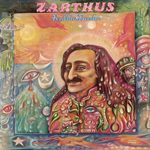
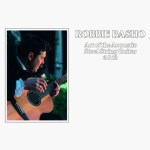
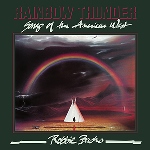
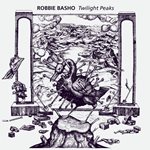
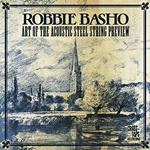
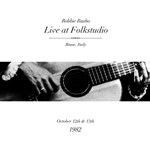

Text is available under the Creative Commons Attribution-ShareAlike License.
Date: February 2020.
Photo Credits: (1ff) Robbie Basho (unknown/website).